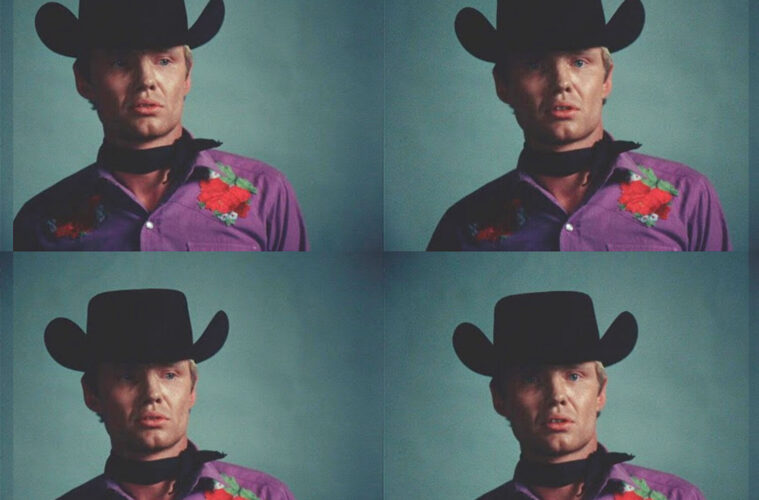 When it opened in the theaters in 1969, John Schlesinger’s masterpiece Midnight Cowboy shook Hollywood to its core. The story of wannabe hustler, Joe Buck (Jon Voight), and his limping, brash compatriot, “Ratso” Rizzo (Dustin Hoffman), not only exposed audiences to the dark corners of society but condemned a system which left people dead on the street, which is portrayed in the movie’s opening montage with Harry Nilsson’s “Everybody’s Talkin’” on the soundtrack. Alongside Easy Rider the film jumpstarted New Hollywood, a movement which favored the complexities of character and setting on screen. Suddenly, movies weren’t just vehicles for entertainment, but living, breathing pieces of art that could speak to our collective fears.
When it opened in the theaters in 1969, John Schlesinger’s masterpiece Midnight Cowboy shook Hollywood to its core. The story of wannabe hustler, Joe Buck (Jon Voight), and his limping, brash compatriot, “Ratso” Rizzo (Dustin Hoffman), not only exposed audiences to the dark corners of society but condemned a system which left people dead on the street, which is portrayed in the movie’s opening montage with Harry Nilsson’s “Everybody’s Talkin’” on the soundtrack. Alongside Easy Rider the film jumpstarted New Hollywood, a movement which favored the complexities of character and setting on screen. Suddenly, movies weren’t just vehicles for entertainment, but living, breathing pieces of art that could speak to our collective fears.
Writer-director Nancy Buirski’s compelling documentary, Desperate Souls, Dark City & The Legend of Midnight Cowboy contextualizes this cultural juggernaut, which garnered Oscars for Best Picture, Best Director, and Best Adapted Screenplay. Midnight Cowboy is the only X-Rated movie to ever win Best Picture (though there’s nothing X-Rated about it). It stretched the boundaries of cinema by empathizing with its scandalous characters– not your usual protagonists, but instead, derelicts who got stepped over by heroes in other movies.
Inspired by Glenn Frankel’s 2021 book, Shooting Midnight Cowboy: Art, Sex, Loneliness, and the Making of a Dark Classic, Buirski casts a wide net over several topics in order to understand how a movie like this came to be. Clearly not interested in the making of the film as much as the dark personalities behind the camera and the tectonic cultural shifts in the country, Buirski makes her point in the opening: Midnight Cowboy wasn’t created in a vacuum but was the result of a country undergoing an identity crisis. If there was molten lava bubbling underground, Cowboy was the seepage that rose to the surface.
Like a lot of great films, Cowboy humanized those who’ve been ignored and marginalized. On the page, it’s simply about two street hustlers struggling to survive the streets of New York, but Buirski reveals the movie’s abundant psychological and societal subtext. Exploring themes such as homosexuality, prostitution, drugs, and homelessness, which were more than taboo at the time, the movie isn’t just provocative, it’s also funny, heartwarming, and authentically human. It’s a journey through a capitalist hell with two loveable street urchins that hit the zeitgeist like an atom bomb. To give one an idea of how shocking Cowboy’s Oscar win must’ve been, only a year prior the G-Rated musical Oliver took home the Best Picture win.
There’s a lot to unpack in Buirski’s doc, and she manages to condense the material into an engaging voyage. By utilizing historic footage, on-camera interviews with the movie’s principal actors such as Jon Voight, Brenda Vaccaro, and Bob Balaban, and ghostly narration from the now deceased director, John Schlesinger and screenwriter, Waldo Salt, Buirski paints a picture of a team of disparate souls who alchemically came together at the right time. Dustin Hoffman is mysteriously absent, although she includes audio interviews with the actor. There are also interviews with film scholars and human rights activists who recognize the movie’s enduring legacy.
Tonally, Buirski’s doc works best when exploring the lives of director John Schlesinger, a gay Jewish filmmaker from England, and Waldo Salt, its blacklisted screenwriter who battled demons both personal and existential. If anyone knew about being outsiders, these two qualified. Schlesinger’s homosexuality, which was illegal for the first part of his life, informs the movie’s paranoid and dark tone, while Salt’s anti-capitalist leanings are reflected in scenes like when Joe Buck gloomily watches a talk show where a dog is being sprayed in the mouth with a new product.
Schlesinger was one of the first filmmakers to strip New York of its old Hollywood artifice and glamor and his background in documentaries and his objectivity as a foreigner lent Cowboy its honest portrayal of a country gone awry. The New York of Midnight Cowboy is as ugly and frightening as it gets.
With a quick running time of 101 minutes, the doc feels overwhelmed by the density of subjects at times. At around the midpoint, the momentum slides into a dreamscape of layered narratives regarding New York, peace marches, the drug culture, and the war in Vietnam. Once it refocuses on the film and not all the centrifugal forces it finds its footing again. Midnight Cowboy is as relevant as it’s always been. As more and more disenfranchised people are being silenced by the majority in this country, this movie is a reminder that film is not only a powerful chronicle of a time in history, but a valuable weapon to fight back.
Editor’s note: The disclaimer below refers to advertising posts and does not apply to this or any other editorial stories. LA Weekly editorial does not and will not sell content.
Advertising disclosure: We may receive compensation for some of the links in our stories. Thank you for supporting LA Weekly and our advertisers.

